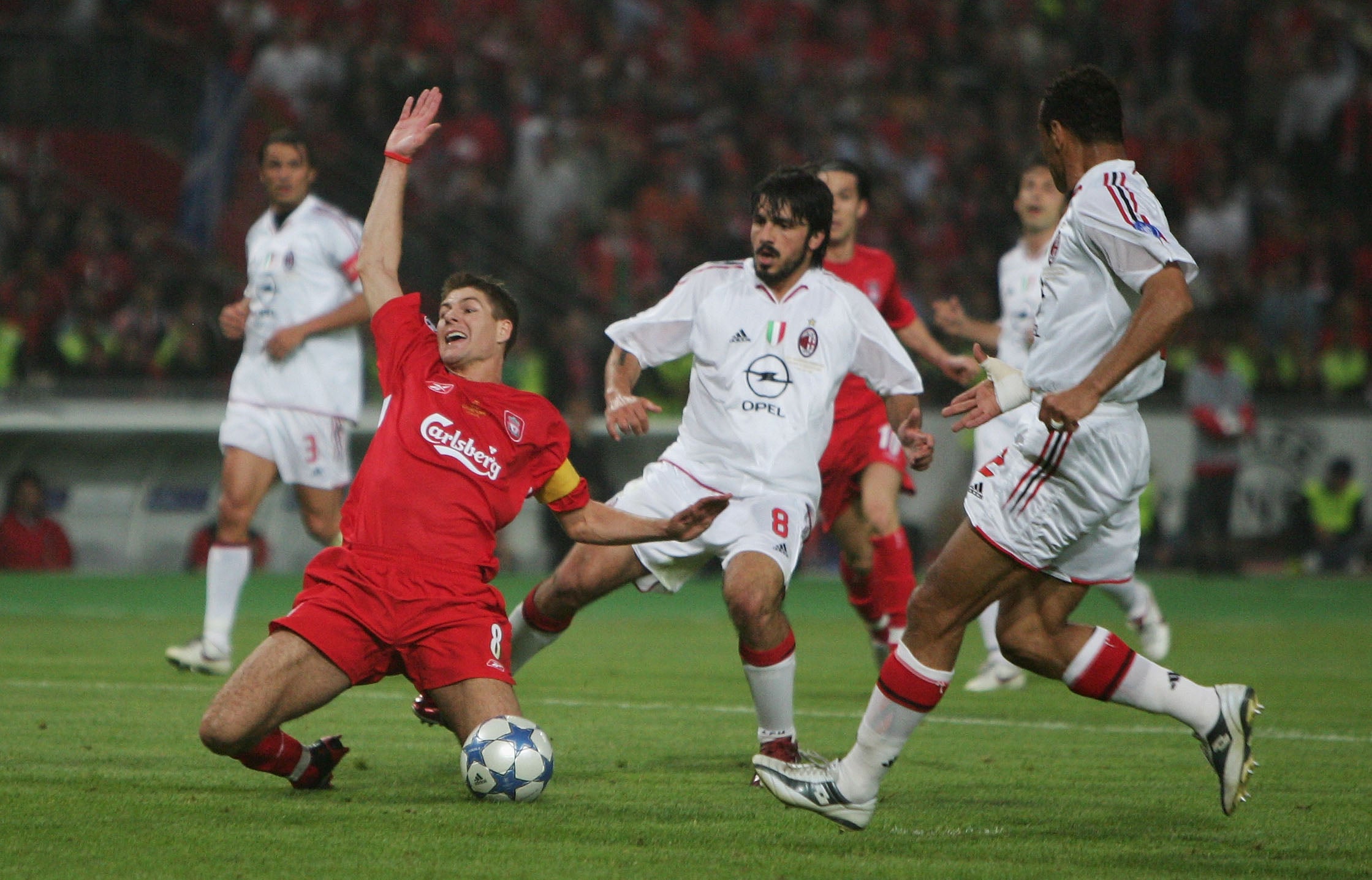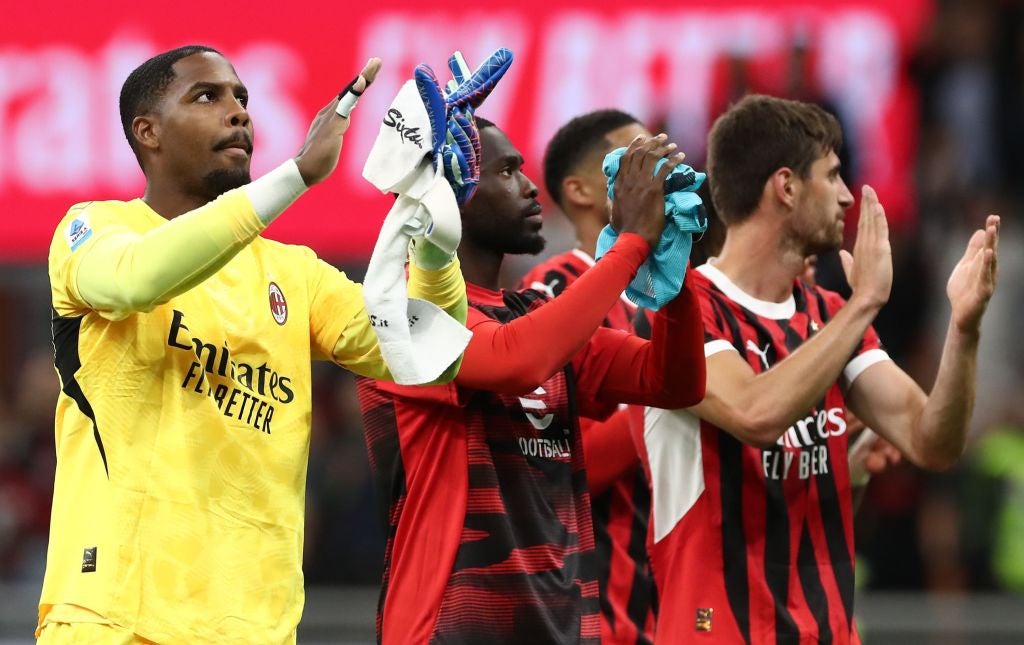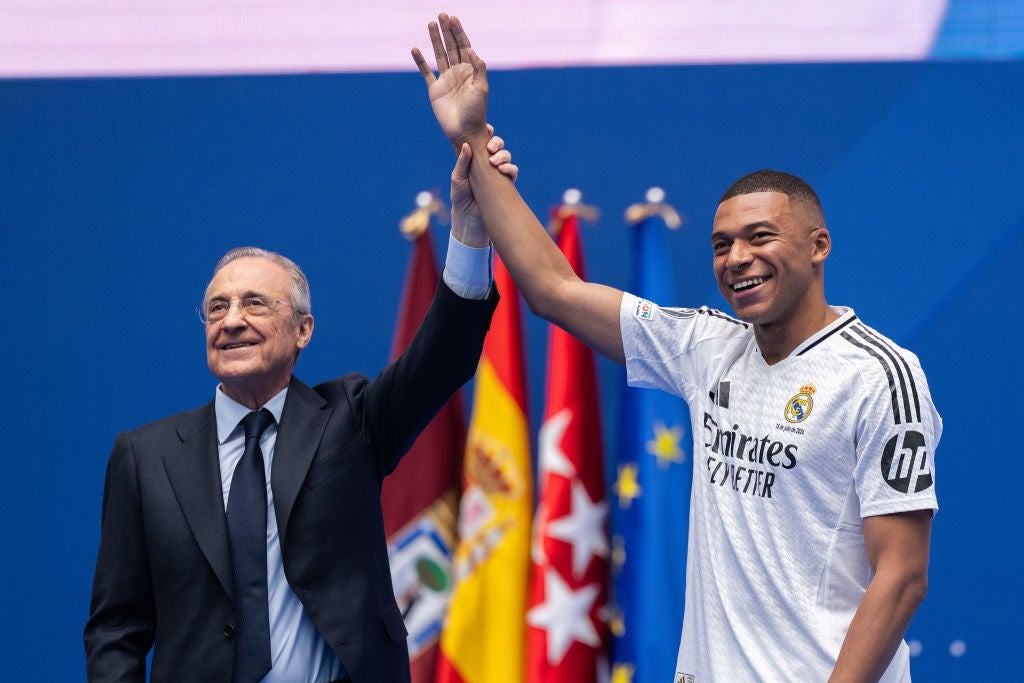The fixture which shows football’s changing face - and how AC Milan got left behind
The Rossoneri and Liverpool met in the finals of 2005 and 2007; in 2024 they meet in the opening fixture of a brand new Champions League format

Your support helps us to tell the story
From reproductive rights to climate change to Big Tech, The Independent is on the ground when the story is developing. Whether it's investigating the financials of Elon Musk's pro-Trump PAC or producing our latest documentary, 'The A Word', which shines a light on the American women fighting for reproductive rights, we know how important it is to parse out the facts from the messaging.
At such a critical moment in US history, we need reporters on the ground. Your donation allows us to keep sending journalists to speak to both sides of the story.
The Independent is trusted by Americans across the entire political spectrum. And unlike many other quality news outlets, we choose not to lock Americans out of our reporting and analysis with paywalls. We believe quality journalism should be available to everyone, paid for by those who can afford it.
Your support makes all the difference.It used to be that Milan-Liverpool matches would crown Champions League seasons rather than kick them off, and it’s not the only thing about Tuesday's meeting that has been upended. The two clubs have consistently been the names directly underneath Real Madrid in the competition’s list of honours since 1990, at which point the Spanish club had six European Cups, with Milan and Liverpool four apiece.
It’s now 15, seven, six. Despite that almost perpetual status as the next greatest clubs on the continent, AC Milan and Liverpool actually only met four times before Tuesday’s fixture at the San Siro. More fittingly, two of those have been Champions League finals, and it was after the last of those that the late Silvio Berlusconi triumphantly came out with the following.
“Twenty-one years ago, when we took Milan on the verge of bankruptcy, we set ourselves a goal: to take the team to the top in Italy, in Europe and in the world. Well, we did it!”
Milan had just beaten Liverpool 2-1 in Athens, gaining revenge for the traumatic defeat of 2005, and in doing so showing the stature of a star-studded team. Looking at the names offers a different prism on the recent trend of ‘Barclaysmen’: Andrea Pirlo, Paolo Maldini, Kaka, Clarence Seedorf, Alessandro Nesta. These were greats, that club legends like Zvonimir Boban insisted were properly befitting of a Milan shirt.
No more. The current team, led by Christian Pulisic, Alvaro Morata and a series of Premier League cast-offs, isn’t at that level. That 2007 squad was essentially the last time Milan had anything close to that level of player, which is also why that Athens final represents the last time they won the Champions League. Much has already been said about the club’s wider decline and the recent private equity-driven resurgence, but there is something far bigger at play.
That is how Berlusconi’s Milan and this match offer such a warning to Florentino Perez, Liverpool, Uefa, Fifa and all the other forces that seek to change the face of the game. You couldn’t have a clearer illustration of being careful what you wish for. Berlusconi may have boasted in 2007 about being top of the world, but the world he created soon outgrew even a club the size of Milan.
It is maybe even more fitting that this specific fixture comes in the San Siro at the very start of this newly expanded Champions League. With a series of games between big clubs across a full season-long campaign, this is Berlusconi’s great vision made real. This is almost exactly the “television spectacular” he wanted in 1987. Back then, notoriously, the new Milan owner had watched Real Madrid eliminate Diego Maradona’s Napoli in the very first round of the old European Cup, and couldn’t believe what a waste it was. He described it as “economic nonsense”, before commissioning Saatchi & Saatchi to come up with something better. The result was a document detailing a ‘European Television League’.
It inevitably formed the foundation of the idea that would weigh over football for three decades and wreak havoc through its sheer gravitational force. That was the Super League, which was persistently used by the big clubs to get what they wanted - right up to this.
Milan have just found themselves on the wrong side of it, not even expected to finish in the top eight, since they're no longer part of that financial elite.

Rangers and Everton offer similar examples in so pushing for the Champions League and Premier League, respectively.
That is all because Berlusconi unleashed an even greater force on football than even the idea of the Super League. More important was the economic model that lay behind it. Berlusconi wanted to use football to sell subscriptions to his new satellite stations, creating a “virtuous cycle” that would financially improve both.
There was little argument against the idea that the grim football world of the 1980s needed improvement, innovation, and stardust. The problem was that there was no stop to the cycle. This model was taken up by everyone from Canal+ to the Premier League and of course the Champions League, combining with huge changes like the Bosman ruling to create a race with no checks. It became a battle to grab the most land and then consume everything else from there.
Football, courtesy of a right-wing former Italian prime minister, had been totally surrendered to a neo-liberalism that became the game’s guiding creed.
Even Milan, just like Rangers and Everton, couldn’t generate enough revenue to keep up. For Berlusconi’s part, there was another conspicuous comment that he made in 2007. That was that Italian football was in danger of becoming “a supermarket” against the mega-industries of the new football world, especially with money starting to come in from the Gulf.
While he recommended proactive steps, the problem with his statement is that the issue obviously went well beyond Italy. So many other clubs and leagues have fallen behind. This is what happens when sport becomes a free market, open to the highest bidders, with concentration of resources hardwired in by design. There will always be a bigger fish, a greater financial interest. By 2017, Berlusconi had to sell Milan, expressly stating he felt he could no longer keep up with clubs owned by states.

He had already long been succeeded as the game’s great “visionary” by Florentino Perez. The Real Madrid president suitably succeeded Berlusconi as the driver of the Super League, too. That project was ultimately a plan to try and control the new powers of states and capitalist funds, who had themselves replaced industrialists like Berlusconi and Perez as the most influential forces in the game.
It’s also another attempt to change the world, all as Fifa try to introduce a new Club World Cup that could even become an international super league by proxy.
The lesson from all this should be how football needs to think collectively much more. It isn’t to embrace neo-liberalism, but to embrace a more collective form of sporting regulation, that even American competitions long ago realised.
Otherwise, in a football world that doesn’t actively seek to reduce the gaps between the weakest and the strongest, anyone can fall away. All it takes is a few wider forces outside football to exert some pressure and everything can be changed.
Through this new Champions League, Uefa are really just surrendering to those same forces in a more long-winded way. You could say the same for the competition, this opening fixture, and the home club. It doesn’t feel like what it should be.
Join our commenting forum
Join thought-provoking conversations, follow other Independent readers and see their replies
Comments